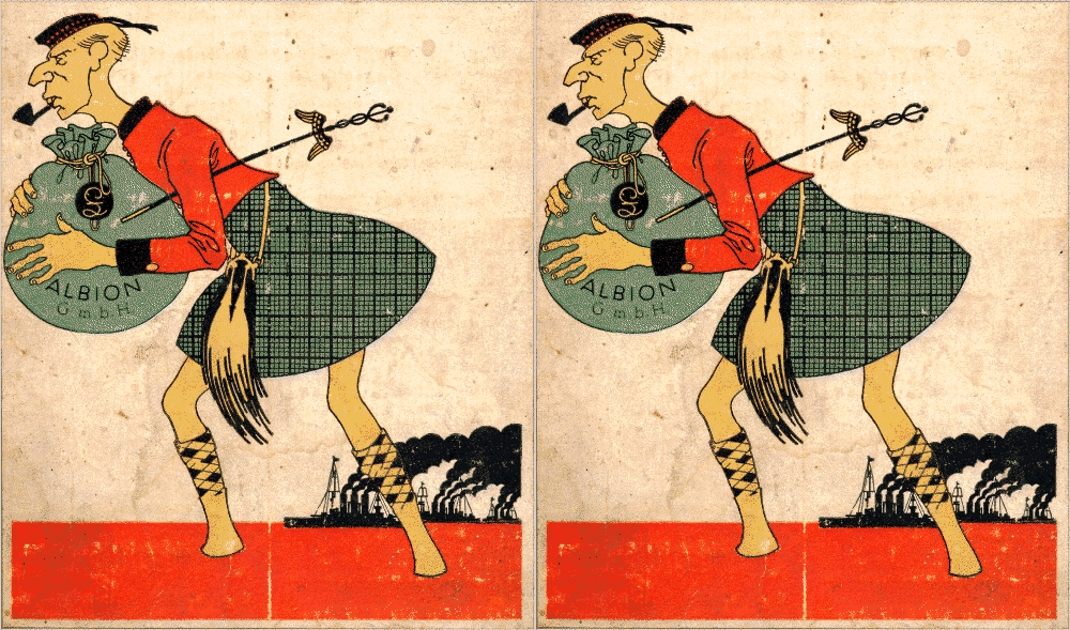Howl of the Day: Jun 27, 2016
On June 23rd, Britons voted that the UK should leave the European Union. This is a momentous decision. But the lead up to it was more remarkable for a lack of moment than it was for anything else.
There had been no preceding crisis, economic or otherwise. There was no great fury of campaigning between the respective sides; the leaders of the Tories and of Labour did not act as if their fates or those of their parties were on the line. Even the vote itself was hardly overwhelming in its proportions – 51.9% voted to leave and 48.1% voted to remain. The future of the EU, a massive institutional undertaking that has dominated European political life, in one form or another, since the end of World War II, might have been decided by this less than 4% of the 70% of eligible voters in Britain that actually went out to the polls. That is about 0.15% of the population of Europe. That is the number it took to shake the great edifice, and it did not even require much effort from them.
On the day following the vote, it almost seemed as if Britons and the rest of the world had woken up to an unanticipated outcome, and one with absolutely unclear consequences. Britain had shrugged the day before, as the result of an almost latent and unconscious national instinct, a political instinct, and the world had been sent reeling in its wake.
It is the political character of the vote that makes it so important and that makes it so powerful, regardless of whether it was right or wrong, small or large in number, and well-conceived or not.
The Brits have done everyone a service by reminding us that political issues and political desires are of far greater priority than economic ones. It is politics that gives shape to lesser concerns, including those of the economic kind, even in capitalist and free market states, which still require a certain political order to make such economies possible. It is politics which gives expression to so many of humanity’s highest and most deeply cherished goals. This is so, even when fundamental political issues are not immediately or noticeably in play, because a given status quo prevails and therefore seems inevitable to so many that dwell within it. For it is not our most common and prosaic qualities that actually define us, it is our rarer and more distinctive qualities. We have much in common with animals, but we do not live like them, nor do we live with them especially well. As human beings we do not spend most of our days thinking about justice, but we do think about it sometimes and we care for it in a manner that defines us. We are political animals, and justice is what politics about.
There are already attempts to gloss over the essentially political quality of this event, and many more are sure to come. There have been jokes at Britain’s expense, some of which are quite funny. But these attempt to defend with laughter what they cannot establish by actual argumentation. And, of course, there are retroactive explanations of the vote in economic terms. These are likely to proliferate without end. It is as if the Brits were so moved by calculations that remaining in the EU would cost them more money than leaving it that they voted to leave. But this is not at all the case. Long term calculations to this effect were scarcely possible, and everyone who thought but once about it knew that there would be severe short and mid-term costs associated with leaving the world’s largest market.
Even lower order political issues, like that of immigration, were not the decisive factors. Immigration policy was certainly important here, for a mixture of both sober and crude reasons, but this was not a tidal wave of bigots running to the polls to strike back at the Other. Immigration was just one of the issues, albeit a significant one, that a majority of voting Britons would prefer to have control over. This was then a political move of the purest sort – it was a choice about who should rule Britain, even if the outside rule under consideration was far from total. The question that moved people enough to vote to leave the EU, in the numbers that they did so, was the question of whether Britons should rule themselves or be ruled by some vast and largely unaccountable bureaucracy on the European continent. More than 17 million British citizens voted against the latter.
Britain has been called “perfidious Albion” before, in no small part because it has refused rule by other large foreign organizations, as well as frequently rejected the alliances of other nations. Henry VIII ran his own sort of “leave” campaign against an earlier great and overreaching universalist spider of the continent (granted, he managed his campaign a great deal more effectively than present British leaders). Britain has always been a proud lady—and is still symbolically ruled by one—and has therefore often been unwilling to submit her ardor to the claims of others, whether their claims were just or not.
How this most recent British rejection of other European nations will play out, for the EU and the wider world remains to be seen, and much of it seems ill-considered and even impudent. But, as for Britain, in the immediate wake of this vote, we can say at least that it is quite itself. Britain is alive, if not necessarily well.
Image: Cover of Alfred Geiser, Das perfide Albion (1915)










“On June 23rd, Britons voted that the UK should leave the European Union. This is a momentous decision. But the lead up to it was as remarkable for a lack of moment than it was for anything else.
There had been no preceding crisis, economic or otherwise.”
Yeah, except the great recession, and the failure of the EU to minimize it. And the horrible way Greece was dealt with. And the failure in Ukraine. And the very recent crisis with the hordes of migrants in East europe. But hey, beside, that, it was all hunky dory.
None of which affected UK. (The economic crisis does not count because UK is out of the Euro)
They certainly influence the UK, though sometimes indirectly (sometimes not – the refugee crisis brought to the deal with turkey and its higher chance to join the EU, something UK is strongly opposed). Beside, it certainlly gives a VERY bad impression of the EU, enough to strenghten UK’s desire to leave. …..beside, there have been crisis, that was my point.
The economic crisis did affect Britain, but the EU and the euro were not the cause. It was the banking crisis, triggered by the sale of sub-prime mortgages in the United States, with the collapse of the BlackRock and Lehman Brothers banks causing a near-meltdown of the system.